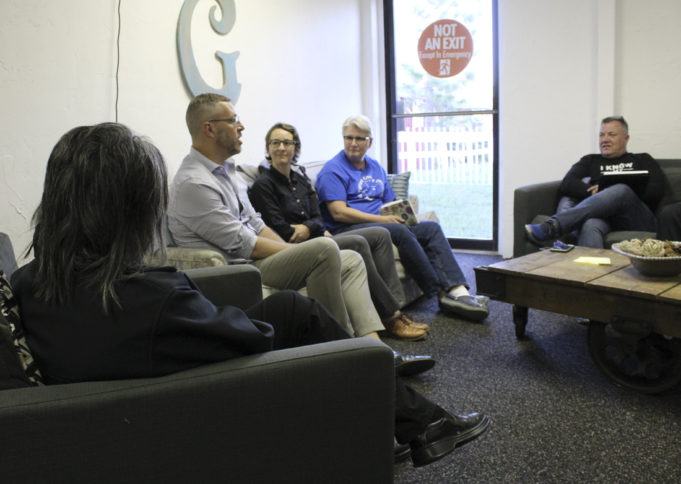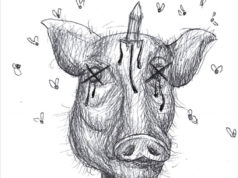Texas leads the nation in a variety of categories – some good, some bad, depending on your point of view. Our state kicks the others’ asses in job growth and wind energy. We also head the pack in wrongful convictions and state-sanctioned executions, so there’s that.
Now, with an assist from Gov. Greg Abbott and our bathroom bill-obsessed, pot-hating, deportation-friendly state legislators, Texas can boast of having “the worst” anti-LGBTQ child adoption policy in the country.
That’s how Lambda Legal lawyer Currey Cook described House Bill 3859 to a small group of LGBTQ community leaders at Galileo Christian Church last week in southeastern Fort Worth. Couches and chairs had been pulled into a small circle for the low-key group discussion. Fort Worth Weekly readers might recognize the New York-based law firm. We recently described how Lambda Legal filed a lawsuit against the United States Conference of Catholic Bishops and the U.S. Department of Health and Human Services (HHS), which administers federal funds to adoption agencies. The suit was filed on behalf of a gay Fort Worth couple whose request to foster a child was denied by Catholic Charities (“A Poor Reflection?” March 2018).
While not tied to HB 3859, the lawsuit, Cook said, has implications for the house bill.
“If we get a good ruling, it would [mean] the court is saying you can’t use government funding to support discrimination,” he said. “HHS is clear via contract language [that discrimination is not allowed]. Catholic Charities has been one of the main proponents of bills like HB 3859, yet they were still awarded these government contracts.”
HB 3859 is one of several controversial bills targeting the LGBTQ community during the 2017 legislative session. The bill allows child welfare organizations such as adoption and foster agencies to turn away individuals and couples if the agency has a “sincere” religious objection to the prospective parents’ lifestyle or beliefs. In short, it allows discrimination against qualified parents based on arbitrary reasons.
In the wake of the controversial policy, many legal firms and LGBTQ-friendly groups have become proactive to ensure that stand-up, law-abiding people have the ability to foster and adopt. Cook’s main concern, he said, is that the bill allows any group related to foster care or adoption services to refuse services to those in the LGBTQ community. The broad language allows shelters and group homes to deny services based on religious objections.
“A lot of group homes are faith-based,” Cook said. “That’s where 3859 may be giving people the impression they can engage in conversion therapy.”
Nothing in the law prevents foster and adoption agencies from working with members of the LGBTQ community. Many people in the LGBTQ community looking to adopt use social media or word of mouth to find accepting agencies, said Lambda senior attorney Natalie Nardecchia.
“People are getting good at knowing which agencies to avoid these days,” she said.
Hey, Catholic Charities. Good people are avoiding you because of your perceived bias. How’s that make you feel?












